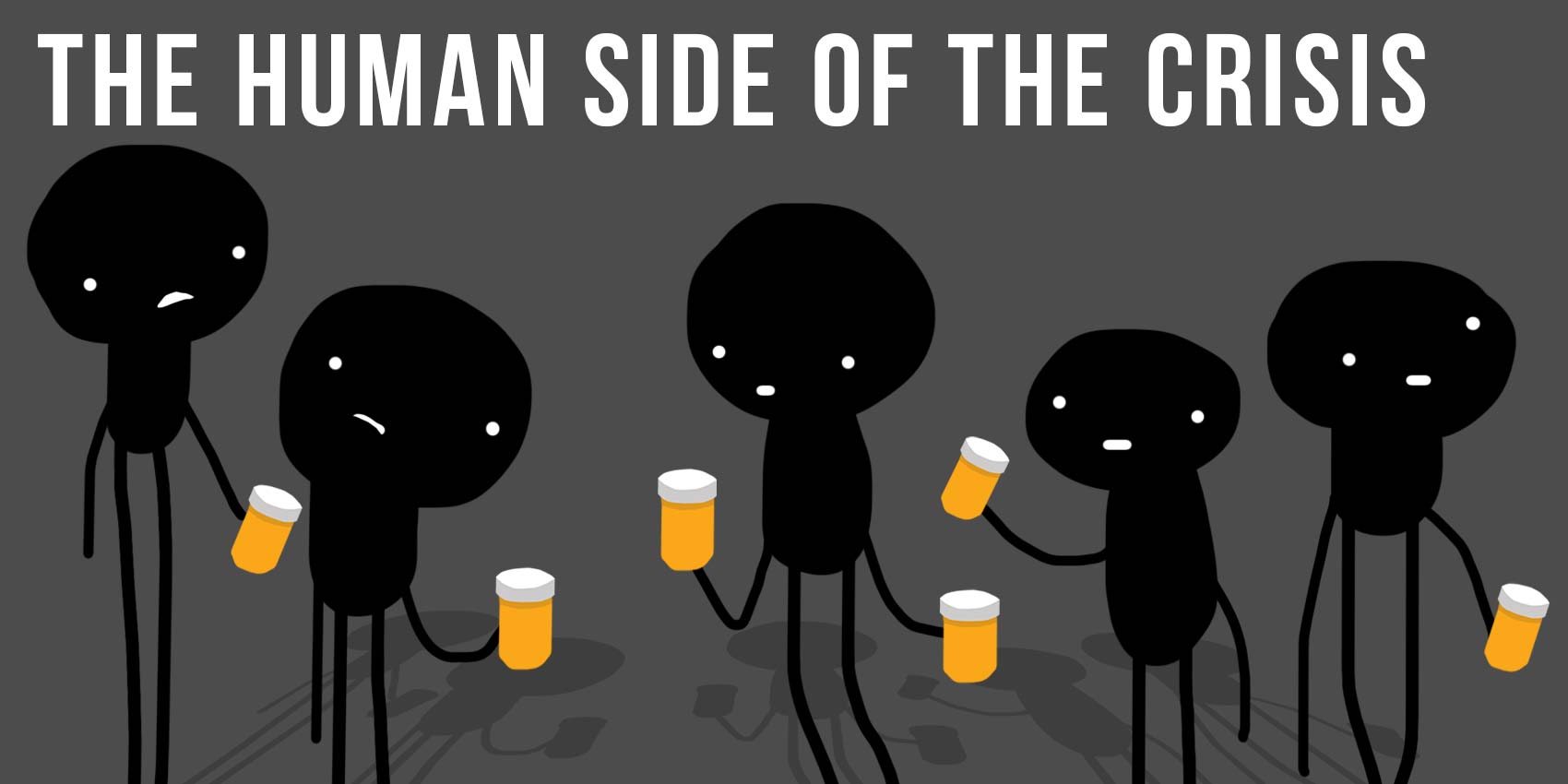31 Aug The human side of the crisis

The opioid crisis is hitting communities HARD all across this country. You read about the slippery slope so you know how the opioid addiction began—prescribed pain medication became abused and many people became addicted. They then turned to cheaper and easier methods to get high, often using heroin. Sometimes people injected the heroin with unsafe needles, exposing them to diseases like HIV/AIDS. Soon, stronger synthetic drugs like fentanyl were put in heroin, causing a spike in overdose deaths.
So, prescription medicines are the route many people took that ended them on addiction lane. Sadly though, a road map leading to that route was provided by pharmaceutical practices and the marketing of OxyContin. Huh? How? OxyContin is a time-released prescribed pain killer marketed as safe by its manufacturer Purdue Pharma. But Purdue Pharma hired sales reps to convince doctors in certain communities (where a lot of factory workers were needing pain meds for injuries) who were prescribing “immediate release” opioids that with OxyContin addiction was rare. The more sales these reps made, the higher their bonuses, so they were motivated to convince the doctors of OcyContin’s safety. Here, it is argued, is where the route to addiction began. This ended up in a big trial. (Source: NPR)
The Purdue Pharma trial, unfortunately, depicts the incredible human toll this crisis is taking. Parents of teens and young adults who had overdosed and died came from all over the country to be in the courtroom and face whom they believed were responsible for their children’s deaths. Their stories are heart wrenching and unfortunately, repeated daily throughout the nation. The devastation to families is beyond words.
These families’ stories represent a crisis that is crippling our nation: it is taking hard working, self-respecting, healthy individuals and turning them into addicts. An addict often feels debilitating shame, is unable to contribute to society and is definitely not healthy. Worse, an addict can (not in all cases!) turn to other illegal activities to support his habit. In short, the numbers and facts that you read in these posts don’t capture the hardships and despair felt by the addicts and by the families surrounding them.
In addition, the economic toll is immense. In communities like Huntington, West Virginia, where the opioid crisis is ten times the national average, they spent roughly over $1,000 per person in healthcare costs just associated with drug use in 2015. Those numbers are likely higher now. That’s a huge cost to society. At the rate we are going, this country could bankrupt itself. We simply can’t keep spending at this rate without dire consequences. Which is one of the reasons why the US government has declared this a crisis. As a crisis, the government can spend a lot more money to try to battle the epidemic.
The economic and emotional toll is profound. Every demographic is affected. Those who survive and/or are living as addicts describe heroin in particular as having its own brain within your brain; it simply takes over. As such, people do what others may consider outrageous—leaving their families, their children, their friends, their entire support system, to get high “just one more time.” Unfortunately, many lose the battle with this addiction and leave loved ones in even more agony, wondering what else they could have done.
So as you read these posts and you learn really important information about how the the crisis began (The Slippery Slope), about the Warning Signs and Treatment Options, about the different kinds of Opioids and Opiates, and importantly, How to Save a Life, don’t forget the bottom line:
Opioids kill people at alarming rates everyday. And the addiction starts in what seems to be the most harmless and even innocent of ways—a doctor’s prescription. But it ends with real tragedy that saturates countless people with grief, pain, shame, guilt and loneliness.
Spend some time talking to friends and family about this national crisis. What do you think the country could do to help stop it?




Post Question:
How has the crisis impacted your school or community? If you could help in some way, what would you do?
Answer the post question here
What's being said